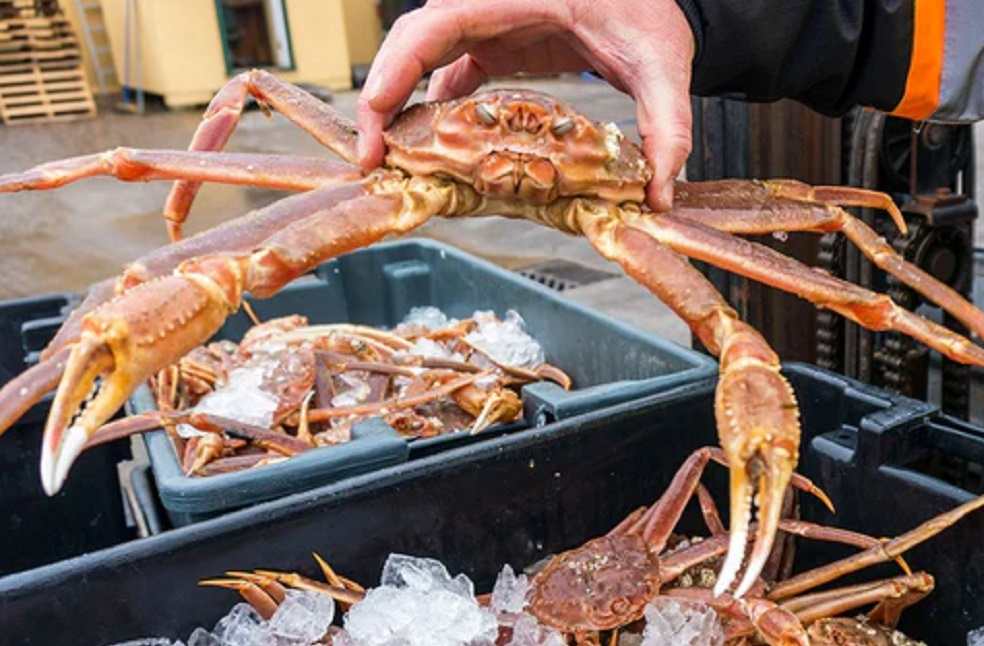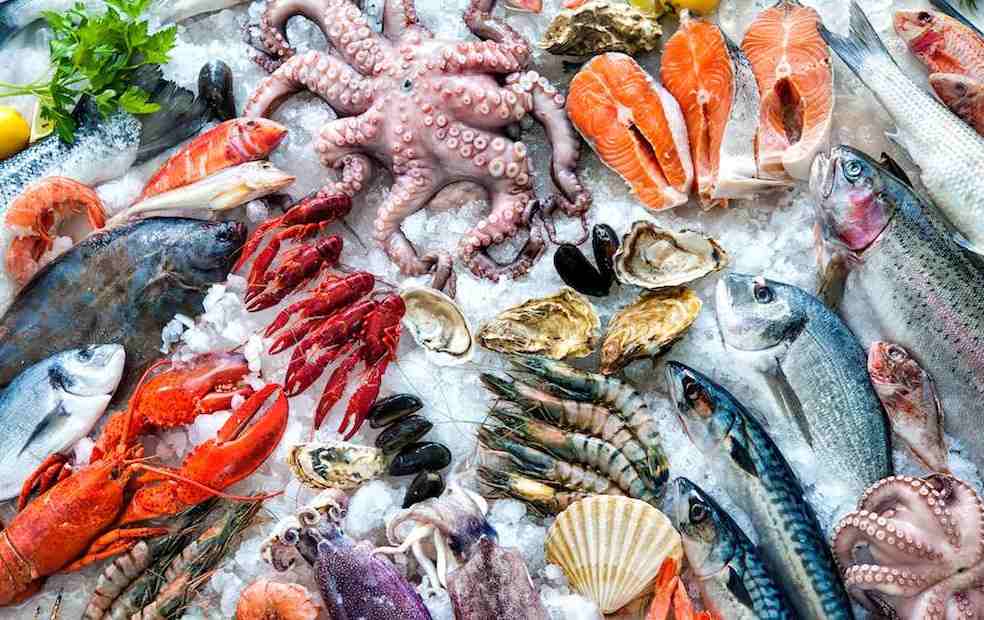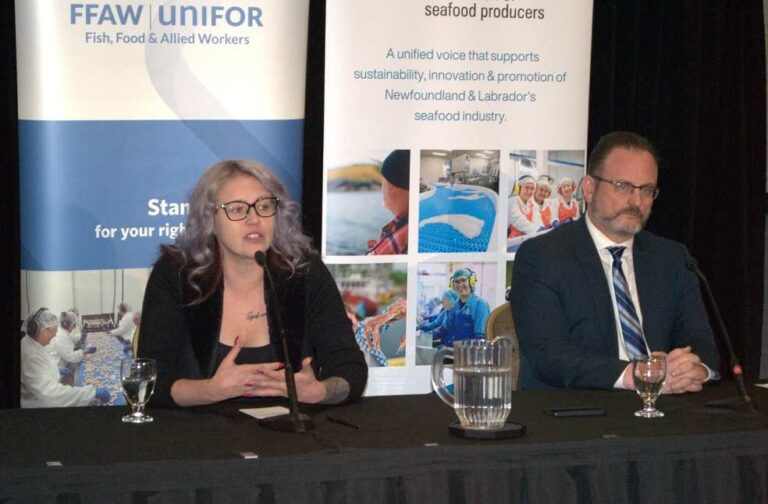Newfoundland and Labrador’s fishing industry leaders seek urgent talks with officials to help the fishery sector survive Trump’s new tariffs. Jeff Loder, head of the Association of Seafood Producers, described the tariffs as arguably the most serious threat to the Newfoundland and Labrador fishery since the cod moratorium. The sentiment was echoed by Dwan Street, president of the Fish, Food and Allied Workers (FFAW) union, who urged immediate discussions.
Loder and Street sat together at a joint press conference on Monday, underscoring the severity of the situation and expressing solidarity. The tariffs, enacted by an executive order on Saturday, impose a 25% duty on virtually all Canadian goods entering the U.S.—a significant blow to the province’s fishery, which exported about 90% of its snow crab to the U.S. last year.
The snow crab industry alone was valued at $761 million in 2022, making it a crucial pillar of Newfoundland and Labrador’s economy. While supporting local consumption remains a priority, Street acknowledged the challenges of absorbing such a high volume domestically, stating, “As much as we want to preach ‘buy local,’ I don’t think there’s the buying power in Newfoundland and Labrador—or in Canada—to absorb that volume of such a niche product.”

Loder and Street refrained from specifying their exact demands but insisted on a private roundtable discussion with government officials. Loder described the proposed meeting as a ‘war room’ dedicated to addressing the crisis and easing the risks posed by the tariffs.
“We need to figure out how to have a fishery and protect the fishery, and reduce the risk related to the actual tax that will have to be paid, as well as other potential issues that may arise from a fundamental change in the way the United States is handling trade,” Loder explained.
With the snow crab season approaching and processors in the process of hiring temporary foreign workers, both leaders stressed the urgency of the situation.
“The clock is ticking,” Loder warned. “We cannot, as it stands right now, sign a contract—which is what we do in Newfoundland and Labrador, between harvesters and processors—without a much more clear understanding of the risk profile.”

Beyond immediate concerns, Loder and Street emphasized the need to explore new markets and secure financial support to facilitate that transition. They are advocating for the revival of a government fund to help market Newfoundland and Labrador crab and shield the industry from global price fluctuations. A key factor in this equation is the potential impact of the U.S. lifting its ban on Russian crab, which was imposed following Russia’s invasion of Ukraine. Such a move could further destabilize the seafood market.
“If we’re in this position three or four years from now, somebody will need to be blamed. And I can tell you it will not be the two people sitting at this table,” Loder stated firmly.
ENERGY INDUSTRY | Brazil’s Oil Exports May Lead Again in 2025, IBP Reports



